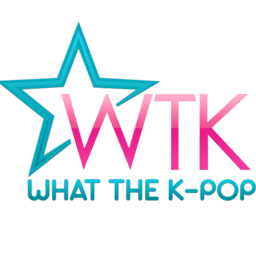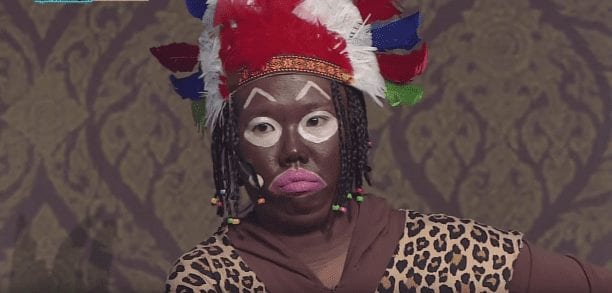South Korea is a beautiful place to live and/or visit, however, it still has some ways to go in being attentive to cultural diversity. Sometimes, things that are said or done can be insensitive to certain groups of people. Because Korea is such a homogenous country, they tend to dismiss these insensitivities due to the lack of diversity. Examples include the use of blackface, absurd stereotypes, and blunt discrimination.
Korea has a long history with the use of blackface. Even though it has died down in recent years, the problem still exists. A while ago, MAMAMOO had a scandal where they used blackface in their video for a concert. As a result, they got a lot of backlash for it, forcing to them quickly apologize and remove the video from future concerts. We all hoped this would have been the end of blackface once and for all in Kpop, and if not, then at least for the time being. However, such is not the case! Apparently the news of MAMAMOO’s blackface scandal didn’t reach SBS, because they recently made a whole skit using blackface and making fun of both Native American and African culture by doing stereotypical actions and sounds. If you think blackface is not such a “big deal,” take a look how blackface originally started.
Blackface is a theatrical portrayal of the African-American stereotype by non-black entertainers for enjoyment of non-black viewers. In other words, it is a mockery of African-Americans. In 1848, blackface became popular in American performance theatre, lasting for about 100 years. Shows like “Happy-Go-Lucky Darky on the Plantation” and “ Dandified Coon” reinforced the racial stereotypes of dark skin, big lips, etc. Sound familiar? Ahem, SBS. *cough cough* Finally, in the 1960s, the Civil Rights Movement ended blackface. #NotReally

In 2017, we still see blackface when people want to dress up as their iconic black artist or entertainer. For instance, Alice Kunek’s blackface instagram post last Halloween proved that it is still around today. This was also the case with MAMAMOO who, as we can all at least agree, admires Bruno Mars. However, changing the skin color to match his own as part of an act was excessive— dressing up in his clothes and singing his songs would have sufficed for a Bruno Mars tribute! To give an example of how this could be done properly, watch BuzzFeed’s video to learn how to dress up as an iconic black entertainer without the use of blackface.
As this article was in the works, news arose that MAMAMOO once again used blackface after said recent occurrence. Although this instance is somewhat different, as they weren’t portraying a specific individual, it was still extremely inappropriate. Here’s why— Solar was depicting a homeless character. There may have been nothing wrong with that per say, but she covered her whole face with a much darker shade than her own in an attempt to look “dirty.” Whatever her reason, it was still the use of blackface and insulted many people. It isn’t just offensive to blacks and other people of color, but also others of the same race who just have a darker skin tone like darker Koreans, South East Asians, etc. An appropriate measure would have been to use patches of dirt in the same nature as BGA did in their music video “Who’s it Gonna Be” or not use dirt at all and just wear ragged clothes like BTS’s Jungkook, V, and Jimin did.




In the case of SBS’s “People Searching for Laughter,” that was a blatant blackface performance, one that would have been used in the 1800s. Variety show star Sam Hammington announced his disgust via Facebook, calling it “pathetic,” but comedian Hwang Hyun Hee responded negatively to his post saying:
“Sam hyung… I was thinking of privately messaging you, but your verbiage was wrong so I’m going to post this publicly…
Your hasty generalization of a simple costume promoting the derogation of Africans can also be interpreted like this: the characters Younggoo and Maenggoo (characters from children’s comedy show with lower-than-average IQ) can be interpreted as offensive to autistic children, and a long time ago, there was a comedy skit called 시커먼스 (rough translation: Blackies) that received a lot of love for a long time. Would that also be considered derogatory to Africans? If that were the case, then your show ‘The Return of Superman’ can be interpreted as a program that gives financially struggling parents a sense of comparative deprivation, because they can’t provide their children with the things shown in the program, such as visiting nice places and eating delicious foods.. But that’s not the show’s intention, and nor is it yours. I don’t think “pathetic” is the right way to describe it.”
Terming blackface as a “simple costume,” Hwang Hyun Hee is an example of someone who dismisses cultural insensitivities due to the little exposure of cultural differences.
TV personality Sam Okyere was on “Hello Counselor” as a friend of Stanley Hawi, a guest on the show. Stanley and Sam both spoke about their challenges while living in Korea as Africans. The video can be watched here. Sam Okyere was recently on “As I Say” Ep.15 to talk about his discrimination in Korea. He talks about the use of the term 흑형(black hyung) or 흑누나 (black noona) and how uncomfortable it is, being that black people are the only race that Koreans have a term for, although others see it as a term of admiration. To see some opinions about the use of the word, watch Heechulism’s video here.
For similar stories, watch both Uzoh Paul and Lee Michelle on another episode of Hello Counselor.
Blackface stems from ignorance of its history and lack of diversity, while the latter also leads to many challenges for a foreigner. Many foreigners, of all races, experience some kind of injustice during their stay. For example, there are many clubs that have signs that say, “No foreigners allowed.” Businesses say the reason for this is because there have been instances in the past where some foreigners have caused trouble and it is better to ban all foreigners. Some places allow foreigners, but don’t allow them to drink in the club. Either way, there is some kind of restriction in these places,






Raki from Let’s Talk Korean explains her experience in Korean clubs here.
https://youtu.be/2mGKKmeb2LA
Of course, foreign tourists are not the only prey of discrimination, but many Kpop celebrities are as well. Such celebrities include Seventeen’s Vernon, Miss A’s Fei, MFBTY’s Yoon Mi Rae, along with others. You can read more about it here.
Korea is fast with technology, but it can be slow with accepting cultural differences. Although they still have a long way to go when it comes to accepting such differences, we will continue to love Korea for its amazing music, long history, and rich culture. And in the meantime, we’ll hope and pray for changes to happen around the globe, so we can all live in a happier and more respectful place.
What are your thoughts on racism in Kpop and Korea? Does the lack of education about other cultures make this type of behavior understandable? Or should we expect Korea to modernize their actions and beliefs about racism? Let us know your thoughts in the comment section below!
Panamami started listening to Kpop and watching Kdramas in early Feb 2015. She finally succeeded in getting her best friend into it a year later. Hey favorite group is BTS and her bias is Rap Monster. She also listens to Jay Park and Illionaire and loves discovering new songs with her friend. Panamami loves animals and has a dog and two cats. When not watching Kdramas or working, she can be seen working at a horse farm.
Media: As Credited

